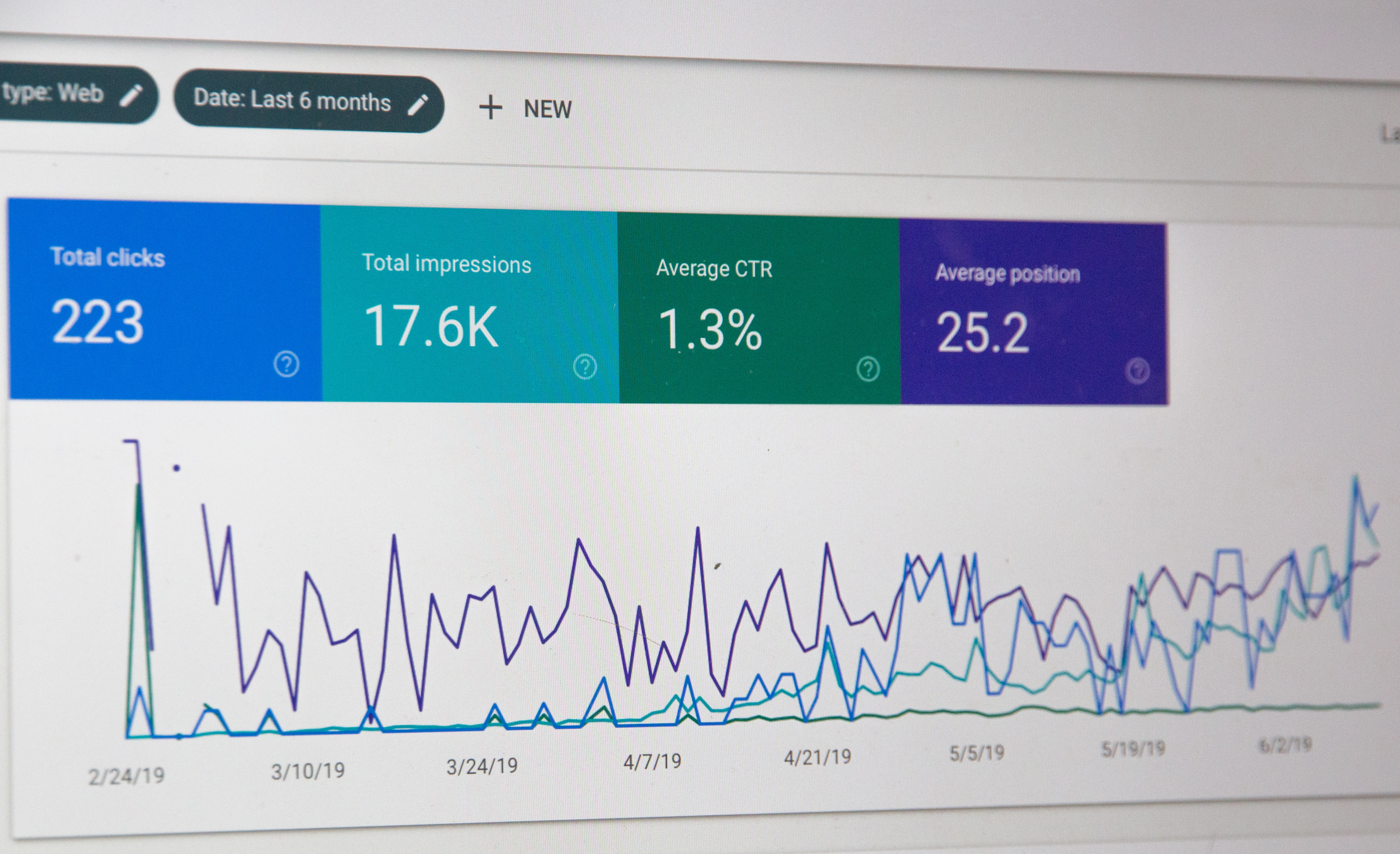Looking to make some extra money through affiliate marketing? While many claim to earn hundreds or even thousands of dollars a day, it’s important to separate the fleeting tactics from the sustainable strategies. In this article, Tyler Stokes, an experienced affiliate marketer, shares his insights on how he went from earning $100 a day to an impressive $100,000 in a month. He emphasizes the importance of building a genuine online business, focusing on evergreen topics, and tapping into passive income sources for scalability. So if you’re ready to learn how to make $100 per day with affiliate marketing and take your earning potential to new heights, keep reading.
Introduction to Affiliate Marketing
What is affiliate marketing?
Affiliate marketing is a business model where individuals or companies promote products or services on behalf of another company. When a customer makes a purchase through the affiliate’s referral, the affiliate earns a commission. It is a performance-based marketing strategy that benefits both the affiliate and the company.
Benefits of affiliate marketing
Affiliate marketing offers several benefits for individuals looking to start an online business. Firstly, it allows you to earn passive income by promoting products or services that align with your interests and expertise. Secondly, you don’t have to worry about inventory or customer service as that is handled by the company you are promoting. Lastly, affiliate marketing offers flexibility and freedom as you can work from anywhere and set your own schedule.
Common misconceptions about affiliate marketing
There are several misconceptions surrounding affiliate marketing. One of the most common misconceptions is that it is a get-rich-quick scheme. In reality, building a successful Affiliate Marketing Business takes time, effort, and dedication. Another misconception is that you need a large following or a website with high traffic to be successful. While having a strong online presence can be beneficial, it is not the sole determinant of success in affiliate marketing.
Setting Up Your Affiliate Marketing Business
Choosing a niche
Selecting a niche is a crucial step in setting up your affiliate marketing business. A niche is a specific segment of a market that you will focus on. It is important to choose a niche that aligns with your interests and expertise, as this will make it easier to create content and establish yourself as an authority in that niche.
Selecting affiliate programs
Once you have chosen a niche, you can start looking for affiliate programs that offer products or services related to your niche. It is important to choose reputable and reliable affiliate programs that offer competitive commissions and provide adequate support to their affiliates. Conduct thorough research and read reviews before joining any affiliate program.
Creating a website
Having a website is essential for your affiliate marketing business as it serves as your online platform. Your website will be the place where you create and publish content, promote affiliate products or services, and engage with your audience. Choose a user-friendly website builder and create a visually appealing and professional website that reflects your niche and brand.
Building an email list
Building an email list is a valuable asset for your affiliate marketing business. It allows you to communicate directly with your audience and promote affiliate offers more effectively. Offer valuable content or incentives in exchange for visitors’ email addresses and use email marketing platforms to manage your subscriber list and send out targeted email campaigns.
Implementing SEO strategies
Search engine optimization (SEO) is crucial for driving organic traffic to your website. Implement SEO strategies such as keyword research, on-page optimization, and link building to improve your website’s visibility in search engine results. This will help increase your chances of ranking higher and attracting more potential customers.

This image is property of images.unsplash.com.
Generating Traffic to Your Affiliate Offers
Content marketing
Content marketing is a highly effective strategy for generating traffic and promoting affiliate offers. Create high-quality and informative content such as blog posts, articles, and videos that provide value to your audience. Optimize your content with relevant keywords and share it on various platforms to attract organic traffic.
Social media marketing
Social media platforms offer an opportunity to reach a wider audience and increase your affiliate marketing reach. Create engaging and shareable content on social media channels such as Facebook, Instagram, Twitter, and LinkedIn. Interact with your audience, join relevant groups or communities, and leverage social media advertising to promote your affiliate offers.
Paid advertising
Paid advertising channels such as Google Ads, Facebook Ads, and Instagram Ads can be effective in driving targeted traffic to your affiliate offers. Conduct thorough research and create compelling ad campaigns that resonate with your target audience. Set a budget and monitor your ads’ performance to optimize your return on investment.
Search engine optimization
Continuing to implement SEO strategies is important for generating consistent organic traffic to your website. Keep up with the latest SEO trends and algorithm updates to stay ahead of the competition. Conduct regular keyword research, optimize your website’s structure and content, and build quality backlinks to improve your search engine rankings.
Email marketing
Utilize your email list to generate traffic to your affiliate offers. Send out regular newsletters, updates, or promotions to your subscribers and include relevant affiliate links. Personalize your emails, segment your audience, and track the performance of your email campaigns to optimize your conversions.
Creating High-Converting Affiliate Offers
Understanding your audience
To create high-converting affiliate offers, it is crucial to have a deep understanding of your target audience. Conduct market research, analyze their needs and preferences, and create buyer personas. Tailor your affiliate offers to address their pain points and provide solutions that resonate with them.
Researching and selecting affiliate products
Choose affiliate products or services that align with your audience’s needs and preferences. Conduct thorough research on the products, their features, benefits, and customer reviews. Select reputable and reliable affiliate programs that offer competitive commissions and provide valuable resources for promoting their products.
Crafting compelling product recommendations
When promoting affiliate products, focus on providing genuine and valuable product recommendations. Showcase how the product or service can solve a problem or improve the lives of your audience. Use storytelling techniques, highlight the benefits, and include personal experiences or testimonials to make your recommendations more persuasive.
Using persuasive copywriting techniques
Persuasive copywriting is essential for converting visitors into customers. Learn effective copywriting techniques such as creating compelling headlines, using emotional appeal, highlighting the unique selling proposition of the product, and incorporating a strong call-to-action. Write persuasive product reviews, comparisons, or tutorials that motivate your audience to take action.
Optimizing your landing pages
Landing pages play a crucial role in converting your website visitors into customers. Optimize your landing pages by keeping them clean, visually appealing, and easy to navigate. Use clear and concise copy, include persuasive elements such as customer testimonials or social proof, and create a strong call-to-action that encourages visitors to click and make a purchase.

This image is property of images.unsplash.com.
Building Trust and Authority in Your Niche
Providing valuable content
Consistently providing valuable content is key to building trust and authority in your niche. Share informative and insightful content that educates and helps your audience. Offer tips, advice, tutorials, or industry insights that establish you as a reliable source of information.
Establishing yourself as an expert
Position yourself as an expert in your niche by showcasing your knowledge and expertise. Share your own experiences, credentials, or certifications that highlight your expertise. Collaborate with other industry experts, contribute to relevant publications, or speak at industry events to further establish your authority.
Engaging with your audience
Engagement is crucial for building trust and establishing a loyal audience. Encourage your audience to leave comments, ask questions, or share their experiences. Respond to their comments and messages in a timely and helpful manner to show that you value their engagement.
Leveraging social proof
Social proof is a powerful tool for building trust and credibility. Collect and showcase customer testimonials, reviews, or case studies that highlight the positive experiences of your customers. Display trust badges or certifications that demonstrate your credibility and reliability.
Building relationships with influencers
Building relationships with influencers in your niche can help enhance your credibility and expand your reach. Identify key influencers or thought leaders in your industry and engage with them. Collaborate on content, cross-promote each other’s products or services, or participate in joint ventures to leverage their audience and establish yourself as a trusted affiliate marketer.
Scaling Your Affiliate Marketing Business
Outsourcing tasks
As your affiliate marketing business grows, consider outsourcing tasks to save time and focus on high-value activities. Identify areas that can be delegated, such as content creation, graphic design, or customer support. Hire freelancers or virtual assistants to handle these tasks, allowing you to scale your business more efficiently.
Expanding into new niches
Once you have established a successful affiliate marketing business in one niche, consider expanding into new niches. Conduct market research to identify profitable niches with potential demand. Leverage your existing knowledge and expertise to launch new websites or create new content targeting these niches.
Diversifying your income streams
To mitigate risk and increase your earnings, diversify your income streams. Explore other affiliate programs or networks that offer products or services in different industries. Consider creating and selling your own digital products or courses to generate additional revenue.
Automating your processes
Automation is key to scaling your affiliate marketing business. Utilize tools and software that automate repetitive tasks such as email marketing, social media scheduling, or data analysis. This allows you to focus on strategic initiatives and maximize your productivity.
Testing and optimizing your strategies
Continuous testing and optimization are essential for scaling your affiliate marketing business. Experiment with different strategies, promotional tactics, or affiliate offers to identify what works best for your audience. Analyze your data, track key metrics, and make data-driven decisions to improve your conversions and Scalability.

This image is property of images.unsplash.com.
Analyzing and Tracking Your Affiliate Marketing Performance
Setting up analytics tools
Setting up analytics tools is crucial for tracking your affiliate marketing performance. Implement tools such as Google Analytics or affiliate network tracking systems to gather data on website traffic, conversions, and campaign performance. Set up proper tracking codes or tags to accurately measure your results.
Monitoring key metrics
Identify key metrics that align with your goals and regularly monitor them to assess the success of your affiliate marketing campaigns. Important metrics to track include click-through rates, conversion rates, average order value, and return on investment. Use these metrics to evaluate the effectiveness of your campaigns and make data-driven optimizations.
Tracking conversions
Tracking conversions is essential for measuring the success of your affiliate marketing efforts. Implement conversion tracking methods such as affiliate tracking pixels, unique referral links, or coupon codes to accurately attribute conversions to your affiliate campaigns. This data will help you optimize your marketing strategies and identify high-performing offers.
Split testing your campaigns
Split testing, also known as A/B testing, involves testing different versions of your campaigns to determine which performs better. Test variables such as headlines, copy, images, or call-to-action buttons to identify the most effective elements. Split testing helps you make data-driven decisions and optimize your campaigns for higher conversions.
Adjusting and improving based on data
Data analysis is crucial for making informed decisions and improving your affiliate marketing performance. Regularly review your data, identify trends or patterns, and make adjustments to your strategies or campaigns accordingly. Use the insights gained to optimize your marketing efforts and maximize your conversions.
Overcoming Challenges and Staying Motivated
Dealing with rejection and setbacks
Affiliate marketing, like any business, comes with its fair share of challenges and setbacks. It is important to develop resilience and a positive mindset. Embrace failures as learning opportunities, learn from your mistakes, and keep moving forward. Seek support from mentors or fellow affiliate marketers to stay motivated during tough times.
Managing time and productivity
Time management and productivity are key factors in achieving success in affiliate marketing. Set clear goals and prioritize your tasks. Create a schedule, eliminate distractions, and focus on high-value activities. Utilize productivity tools or techniques such as the Pomodoro technique to manage your time effectively.
Staying updated with industry trends
The affiliate marketing industry is constantly evolving, so it is crucial to stay updated with the latest trends and changes. Follow industry blogs, attend webinars or conferences, and join relevant communities or forums to stay informed. Continuous learning and staying ahead of the curve will give you a competitive edge.
Learning from failures and mistakes
Failures and mistakes are inevitable in affiliate marketing, but they can also be invaluable learning experiences. Analyze your failures, identify the reasons behind them, and learn from them. Adapt your strategies or approaches accordingly to avoid making the same mistakes in the future.
Finding support and mentorship
Building relationships with fellow affiliate marketers and finding mentorship can greatly benefit your affiliate marketing journey. Connect with like-minded individuals through networking events, online communities, or social media groups. Seek out experienced affiliate marketers who can provide guidance, advice, and support when needed.
Compliance and Legal Considerations
Understanding FTC regulations
Affiliate marketers must comply with Federal Trade Commission (FTC) regulations to ensure transparency and disclosure. Familiarize yourself with the guidelines and requirements for disclosing affiliate relationships, endorsements, or testimonials. Clearly label any affiliate links or sponsored content to maintain trust with your audience.
Disclosing affiliate relationships
Properly disclosing your affiliate relationships is not only a legal requirement but also an ethical practice. Clearly disclose your affiliations and any benefits you receive from promoting a product or service. Use clear and concise language when disclosing that you may earn a commission from purchases made through your affiliate links.
Ensuring data privacy and security
Data privacy and security are important considerations for affiliate marketers. Ensure that you handle any customer data or personal information responsibly and in compliance with applicable data protection laws. Implement security measures such as secure payment processing and SSL certificates to protect your website and customer information.
Protecting intellectual property rights
Respect and protect the intellectual property rights of others when promoting affiliate products or services. Obtain proper permission to use copyrighted material, trademarks, or brand names. Avoid any actions that could infringe on intellectual property rights, as this can lead to legal consequences.
Adhering to industry standards
Adhering to industry standards and best practices is crucial for maintaining a positive reputation as an affiliate marketer. Stay up to date with industry guidelines, code of conduct, and ethical practices. Engage in fair competition, avoid deceptive marketing tactics, and act in the best interest of your audience and the industry as a whole.
Taking Action and Implementing Strategies
Creating a step-by-step action plan
Taking action is crucial for achieving success in affiliate marketing. Create a step-by-step action plan that outlines your goals, strategies, and tasks. Break down your plan into actionable steps and set deadlines for each task. Consistently execute your plan and adapt it as needed along the way.
Setting realistic goals
Setting realistic and achievable goals is important for staying motivated and focused. Define specific, measurable, attainable, relevant, and time-bound (SMART) goals for your affiliate marketing business. This will help you stay on track and measure your progress accurately.
Tracking progress and making adjustments
Regularly track your progress against your goals and make adjustments as needed. Analyze your data and key metrics to identify areas for improvement. Modify your strategies, campaigns, or tactics based on the insights gained to optimize your performance.
Seeking continuous learning and improvement
The affiliate marketing industry is constantly evolving, so it is important to seek continuous learning and improvement. Stay updated with the latest trends, strategies, and best practices. Invest in your education by attending courses, webinars, or workshops to enhance your skills and knowledge.
Celebrating milestones and successes
Celebrate your milestones and successes along the way to stay motivated and maintain a positive mindset. Recognize your achievements, whether big or small, and reward yourself for your hard work. This will help you stay motivated and inspired to continue growing and scaling your affiliate marketing business.
In conclusion, affiliate marketing offers immense potential for individuals looking to start an online business. By following the strategies and best practices outlined in this article, you can set up and grow a successful affiliate marketing business. Remember to prioritize quality and sustainability, continuously optimize your strategies, and stay informed and adaptable to industry trends. With dedication, perseverance, and a customer-centric approach, you can make a significant impact in the affiliate marketing domain.
Source: https://www.linkedin.com/pulse/how-make-100-per-day-affiliate-marketing-tyler-stokes




